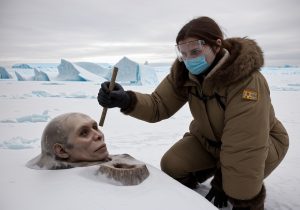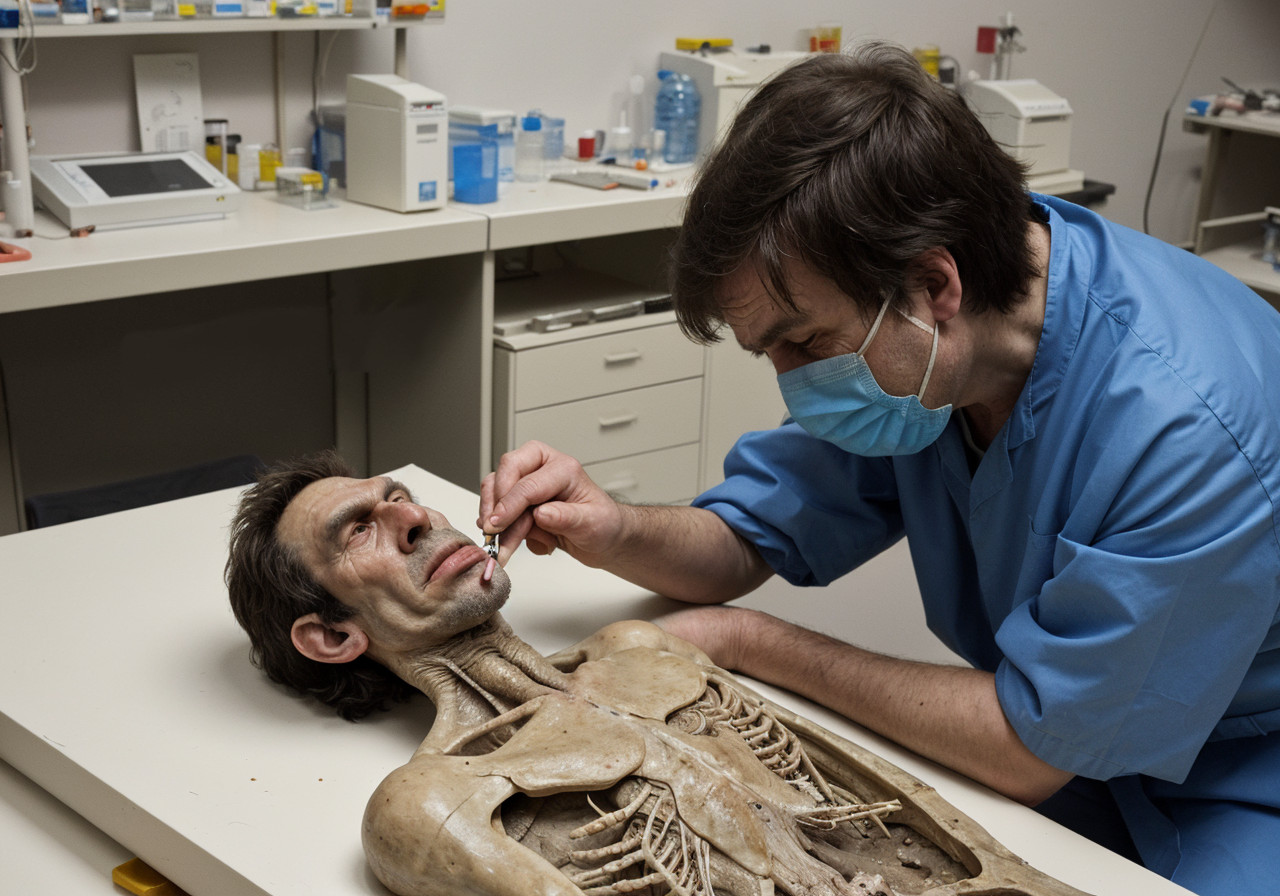The Ankovirus crisis continues to deepen, with the death toll now at 105 and rapid spread particularly in Vostok. In a groundbreaking discovery, DNA analysis of Neanderthal remains has revealed comparable genetic mutations, suggesting that Ankovirus may have played a role in their extinction.

Dr. Elena Mirova, who has been at the forefront of studying Ankovirus, announced the findings. “Our analysis shows that the genetic mutations in Neanderthal remains are strikingly similar to those seen in current Ankovirus patients. This suggests that the virus has been affecting humans for tens of thousands of years and may have contributed to the decline of Neanderthals,” she explained.
The implications of this discovery are profound, indicating that Ankovirus is not just a contemporary threat but a historical one with the potential to resurface due to climate change. “The virus has been lying dormant in glaciers, preserved for millennia, and is now re-emerging as the ice melts,” Dr. Mirova added.
Dr. Ivan Petrov, treating patients in Anko, is facing overwhelming conditions as the virus spreads rapidly in Vostok. “The situation is critical. We are seeing a surge in cases and fatalities. The historical context of the virus underscores the urgency of our current crisis,” he stated.
Andrei Sokolov, the first known survivor of Ankovirus, continues to advocate for resilience and recovery. “The news about the Neanderthals is chilling, but it reinforces the importance of our fight against this virus. We must remain strong and support each other,” he urged. Sokolov remains committed to his gradual fitness recovery, inspiring others with his determination.
Mayor Sergei Ivanov has renewed calls for international assistance. “With the death toll rising and the virus spreading rapidly, especially in Vostok, we need immediate global support. The discovery of the virus’s ancient history makes it clear that this is a long-standing threat requiring a coordinated response,” he emphasized.
Environmental activist Natalia Kirova continues to highlight the link between climate change and emerging health threats. “The connection to Neanderthal extinction shows that climate change is not just an environmental issue but a grave health threat. We must act now to mitigate these dangers,” she warned.

President Vladimir Putin remains under heavy criticism for his handling of the outbreak. “Putin’s failure to respond effectively is costing lives. This new evidence about Ankovirus’s historical impact should be a wake-up call for immediate action,” stated Alexei Novikov, a political analyst.
The World Health Organization (WHO) and other international bodies are intensifying efforts to contain the virus and understand its implications. However, the logistical challenges in Siberia remain significant.
As the Ankovirus crisis unfolds, the world faces a stark reminder of the interconnectedness of environmental and health issues. Coordinated global action is essential to address both the immediate outbreak and the long-term risks posed by climate change.

